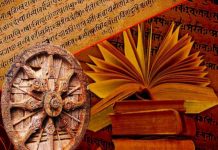This article is written by Shreya Malhotra, from Symbiosis Law School, Hyderabad. This article talks about the laws protecting the rights of widows and the problems faced by them.
Table of Contents
Introduction
In a male-centric society like India, when the spouse of a woman expires, she is considered to be burdensome for the whole family and is compelled to pursue her life as a hermit. This is mostly seen when the woman belongs to a disadvantaged and marginalized community. Severe social traditions and ceremonies are forced upon them, and they need to hold themselves from various other regions.
In India, a large portion of the widows are uninformed about their rights such as rights regarding property, coparcenary, inheritance, etc. In spite of the fact that the rights recommended in Hindu law texts in various frameworks, for example, Mitakshara and Dayabhaga are increasingly unfortunate for women, many changes have made in the current laws, for example, The Hindu Women’s Right To Property Act, 1937, Hindu Succession (Amendment) Act, 2005, The Hindu Succession Act, 1956 and so on. The changes include the amendment in Hindu Succession (Amendment) Act, 2005 which has given absolute interest as a coparcener. According to Section 6(1) of the Hindu Succession (Amendment) Act, 2005, daughter has likewise been made as a coparcener. According to Section 14 of The Hindu Succession Act, 1956, women’s bequest has ended and the old law of succession has also put an end by Sections 15 and 16.
Thus, the above-expressed Sections have really encouraged upliftment of women’s rights and especially the widow’s property rights. Aside from the Hindu Succession Act, 1956, there are various other Acts which have come under the spotlight for fortifying the situation of women with respect to property rights. Simultaneously, such as Section 24 of The Hindu Succession Act, 1956 have set down strict conditions for maintaining a strategic distance from enjoyment in property rights by the ones who are not deserving. At this point when we thoroughly study the Hindu Succession Act, 1956 with its amendment including during 2005, it is visible that noteworthy and huge changes have been advanced which ultimately led to the change in the condition of a widow in relation to coparcenary rights, legacy, and property rights.
Overview
The law identifying with the lawful rights of the widows can be divided into, the law which is applicable to Hindus, Buddhists, Jains, and Sikhs and the law which is pertinent to Muslims, Christians, Parsis, and Jews. In the category of Hindu, Buddhist, Jain, and Sikh the Hindu Succession Act, 1956 is applied for the division of wealth of an individual dying without leaving a will.
Section 8 and 9 of The Hindu Succession Act, 1956 provides for the dissemination of the property of a Hindu male. Accordingly, that property would be delegated to heirs of Class I who take the property all the while to the exclusion of all other heirs. By chance, if there is no one falling under heirs of Class I, the property then delegates to Class II heirs and if there are no Class II heirs it will be devolved to agnates and then followed by cognates. A widow is considered to be an heir of the Class I category and in this manner has a lawful right in the property of her spouse who died without a will.
The widow has a synchronous right in the property along with other heirs of Class I. A widow or even if there is more than one widow, all the widows together take one share while the living son, daughter, and the mother will get one share each.
Muslims are administered under The Muslim Personal Law (Shariat) Application Act, and Christians, Parsis, and Jews are governed under the Indian Succession Act, 1925.
Problems faced by widows
In India, there are certain regions where widows still have to fight for their rights and they have to go through a lot of problems during their widowhood. This situation is not only prevalent in India but in other countries and in other religions as well. The most common problems which a widow faces are as follows:
Economic Problems
Money has been the most major issue in the life of widows. Today also, there are a lot of widows who are unaware of their rights regarding maintenance, property, etc. due to which they go through various financial problems. A large number of widows find difficulties in gaining the basic needs for themselves and children. By taking the undue advantage of their innocence and unawareness the family also doesn’t support them.
Social Isolation and Neglect
Widows are often socially neglected, they are not allowed to attend functions or to be a part of any occasion. They are often discouraged by their own family members. The common problem faced by the widows is that they are not supported by their in-laws and often ignored by them, and this proves to be a major obstacle in their development. The commonness of social disregard against the widows in a community depends on the beliefs and perspectives of the people. The protection and welfare of widows is not only an issue of financial assurance but also of dignity, fearlessness, and involvement in society. In most cases, widows experience different types of social isolation, psychological mistreatment, or extreme distressing circumstances that are associated with the evident intimidations of the social order or of ancestral possessions. The social marginalization of the widows commonly takes place in forms such as allegations, prohibitive dress code, diet and conduct, social rejection from the religious and social life of the society, dissatisfaction, physical inconvenience, and even enmity.
Savagery and Mistreatment
Widows have always been seen with doubt by the general public. There have also been cases, when they are viewed with doubt of having killed their spouses, because of their property and wealth. The pervasiveness of this demeanour doesn’t empower them to carry on with the existence of regard and adoration. There has been commonness of various types of violence and abuse against widows. They are either obnoxiously and physically abused, harassed and are denied of getting engaged in weddings and other functions, and sometimes even get thrown out from homes. Cutting off the hair of widows and abstaining them from wearing any makeup or jewellery is another type of mistreatment done to a widow. The widows even lose their right to getting custody of their kids and are not permitted to meet them, in some instances.
Ignoring the Rights of the Widows
The rights of the widows are often ignored. Such as the right to equality before the law and equal protection of the law, right to maintenance, right to equality as for marriage, option to claim property and right to an adequate way of living, etc. In certain cases, widows are not even permitted to speak with their own children. Usually, the male children get proper training and education by different individuals from the family and they generally get occupied with the performance of employment obligations. The hardship of rights makes the life of widows miserable.
Rights of Widows
Property Rights after remarriage
A law that came into power under the British rule had authorized the remarriage of Hindu widows. Despite the fact that it was a milestone decision yet it denied widows, who remarried, from getting their share from the property of her spouse.
As per Section 2 of the Hindu Widows Remarriage Act, 1856, all the rights and interests which any widow may have in her deceased spouse’s property, shall cease once she gets remarried and the following beneficiaries of her deceased spouse, or other individuals qualified for the property on her passing, will immediately prevail to the same. But, the Hindu Widows Remarriage Act, 1856 has been repealed. Now, the widows who decide to remarry do have a right on their deceased spouse’s property, within the provisions of the Hindu Succession Act, 1956.
In 2015, in Sanjay Purshottam Patankar v. Prajakta Pramod Patil, a two-judge bench decided that a widow even after remarrying, does have a right over her previous spouse’s property. In this particular case, the petition was filed by a man against his previous sister-in-law, who had asserted the right over her deceased spouse’s property after she wedded another man. In this, the brother relied upon the provisions under the Hindu Widows Remarriage Act, 1856, which expressed the constrained right and intrigue which a widow had in her expired spouse’s property would cease to exist if she gets remarried without the explicit permission, and the following heirs of her deceased spouse or other people entitled for the property will immediately prevail to the same. The court in the following case decided that the provisions under the Hindu Succession Act, 1956 would prevail over the Hindu Widows Remarriage Act, 1856 which has been repealed. There was no such provision mentioned under the Hindu Succession Act, 1956 which was pari materia with Section 2 of the Hindu Widows’ Remarriage Act, 1856. The court additionally noted that considerably after remarriage she would qualify as an heir under Class I and the relative of the spouse would, in any case, be under Class II heirs. Further observing the court stated that a woman doesn’t lose her rights over her deceased spouse’s property, whether it may be movable or immovable even if she gets remarried.
Right of Inheritance
The fundamental structure for inheritance varies on the basis of religion in India and not on the nature of assets.
The succession and inheritance laws for Hindus, Buddhists, Jains, and Sikhs are governed by the Hindu Succession Act, 1956. The said Act makes no difference amongst movable or immovable property and is applicable to both men and women. The Act is applicable where there is no will or to intestate succession and to any individual who has converted to the Hindu religion. The Act does not apply where there is already a will or in case of testamentary succession.
There are mainly 2 types of properties namely, ancestral and self- acquired. The ancestral property is one that is acquired up to four ages of male ancestry with no division, and the right to share in it arises by birth. Whereas, the self- acquired property is the one that has been bought by the individual from his own assets or by any property procured from his share in ancestral property. In a self-procured property, the Hindu father keeps on enjoying unrestrained discretion to will it to anybody as per his wish.
At the point when a man passes away without a will, it gets delegated to his heirs under four classifications—Class I, Class II, Agnates and Cognates with the first inclination towards heirs of Class I. Without any heirs of Class I, the property reverts upon heirs of Class II. If there are no Class I and II heirs, the property delegates to agnates, and afterwards to cognates.
Section 6 of the Hindu Succession Act, 1956, applies to the delegation of the coparcenary property of a Hindu male who dies after the initiation of the Hindu Succession Act, 1956. According to Section 8 of the Hindu Succession Act, 1956, the section applies to the delegation of a self-obtained property by Hindu males.
In the case of Narayanan v. Pushparajani, the High Court of Kerala noticed that where an individual dies without a will and does not have any spouse or children and leaves behind a brother by half-blood along with a sister by full blood. In such a scenario, the sister by full blood alone would acquire the property barring the brother by half-blood.
A wife is entitled to an equivalent portion of her spouse’s properties like other living and entitled beneficiaries. In the event that there are no other sharers, the wife has the full option to acquire the whole property of her deceased spouse. As per Section 10 of the Hindu Succession Act, 1956 the appropriation of property happens among all heirs, including the widow of the deceased person.
If the husband is a Christian, then the wife’s religion doesn’t restrict her from acquiring. If the husband has left behind his widow as well as lineal heir, the widow is entitled to get one-third of the share in his domain, while the two-third will go to the latter. In the event that there are no lineal descendants, yet other relatives are present, then the one- half of the bequest goes to the widow and the rest to the related.
Right of adoption
Section 8 of the Hindu Adoption and Maintenance Act, 1956 provides the capacity to a Hindu female to adopt a child. The section specifically says that a Hindu female who is not of an unsound mind, who is a major, and is unmarried or even if she is married, the marriage has been dissolved or whose spouse is dead or has fully renounced the world or has ceased to be of Hindu religion or if he has been declared of an unsound mind by a court of competent jurisdiction, has the ability to adopt either a son or daughter.
After the Hindu Adoption and Maintenance Act, 1956 was passed, the status and position of the widows got changed. Earlier, the widows did not have any such rights of adoption without the consent and explicitly expressed authority of her deceased spouse or in a few situations without the consent of her Sapindus. But the Hindu Adoption and Maintenance Act, 1956 has removed all such obstacles which restrain a widow from taking an adoption. Similarly, in the early days, a woman used to adopt only to her spouse but the situation has changed, today a woman takes an adoption for herself. Now, she will be called the adoptive mother of the child adopted in her own right. By this, the ‘relation back’ theory has been abolished expressly.
In the case of Sawan Ram v. Kalawati, the court held that a Hindu female who is married and the spouse is dead or he has fully renounced the world, or has been declared of an unsound mind by the competent court of jurisdiction if adopts a son then, the son so adopted by that Hindu female or that widow would be considered to be the son of her deceased husband also.
In the case of K. Laxmi Narayan Subudhi v. K. Padmanav, the vital issue which was raised was whether the widow of a Hindu male could adopt a son while her own son has died leaving behind his widow. Now, according to the traditional Hindu law, such a widow is not qualified for taking an adoption on the basis that no sooner her son left behind his own widow, the authority of the elder widow to adopt a son comes to an end. But, in the following case, Hon’ble Justice Mishra did not comply with the following view and held that there is no argument that the widow has a statutory right to adopt. Even if the contention that in law that the capacity of the widow to adopt to her spouse was extinguished under the old law, by the righteousness of the right conferred under the Adoption Act, she was completely allowed to make the adoption.
Muslim personal law and Christian personal law do not recognize adoption and if a Muslim or a Christian casually adopts a child, he is allowed to regard him as his own kid and give the kid his property by the method of a gift but neither the Muslim law of inheritance nor the Indian Succession Act overseeing Christians will regard him as an heir qualified for succession. Section 41 of the Juvenile Justice (Care and Protection) Act 2000, as amended in the year 2006 provides adoption as one of the methods of recovery of children by all Indians and is secular law.
Although, in the case of Shabnam Hashmi v. Union of India, the Supreme Court of India stretched out the right of adoption to Muslims also. The court in the said case pronounced that the right of adoption of a child by an individual according to the provisions of Juvenile Justice Act would prevail over all the other personal laws and religious codes in the country. The three Judges bench comprising of Hon’ble Chief Justice P. Sathasivam and Hon’ble Justices Ranjan Gogoi and Shiva Kirti Singh anyway maintained that personal laws would keep on overseeing any individual who decides to submit himself until such time that the vision of a uniform civil code is accomplished.
Right of Maintenance
In a recent judgment delivered by the Supreme Court of India in the case of Ajay Kumar v. Latha @Sharuti, the Supreme court maintained the choice of the lower court and directed the brother-in-law to maintain his brother’s widow. The two-judge bench held that, in a situation of a Hindu Undivided Family where the widow was not permitted to live in the house after her spouse’s demise. For fortifying and securing the right of the widow, the court referred to Section 2(q) of The Protection of Women from Domestic Violence Act 2005, which stated that relief can be looked for against the relatives of the spouse also.
There are other different Acts that guarantee the rights of widows. Such as under section 8 of The Hindu Succession Act 1956 a widow is qualified to claim her share in the property of her deceased spouse. The arrangement protects her financial security and status significantly after the passing of her spouse.
Section 19 of the Hindu Adoptions and Maintenance Act 1956 talks about the maintenance of widowed daughter-in-law after the death of her husband by her father-in-law, in the event that she cannot maintain herself out of her own earnings or other property or, where she has no property of hers, she is not able to obtain the maintenance from the estate of her spouse, parents, or kids.
Under Section 21 (iii) of Hindu Adoptions and Maintenance Act 1956, the term ‘widow’ has been defined as ‘dependent’ insofar as she doesn’t remarry. In the event that the dependent has not gotten any share in the deceased individual’s property, at that point, the lawful beneficiaries of the deceased person are bound under section 22 to keep up the dependent. The obligation is on each individual who is sharing the property.
The order of the Supreme Court in the previously mentioned case associates Section 19 perusing Section 21(iii) to hold that the relatives, apart from the father-in-law can likewise be directed to maintain the widow.
The amount to be paid for maintenance is one of the most significant questions to be determined, since a deficiency in itself is unjustified. The entirety of the sum is purely at the discretion of the court. In Section 23 of Hindu Adoptions and Maintenance Act 1956, various grounds for determination have been provided such as the background of the dependent, relationship with the deceased, reasonable wants, present condition, provisions in the will, the net value of the estate of the deceased, any debt, number of dependants entitled to maintenance, etc. The significance of this section can be comprehended by its adaptability which assists the court in finding out the sensible measure of maintenance.
Under Muslim law, maintenance is provided for the continuance of marriage, dissolution of marriage, maintenance to Muslim Divorced Woman until Her Remarriage, or if the wife is living separately due to the cruel nature of her spouse and non-payment of dower. But the wife is not entitled to claim maintenance during widowhood.
Under Christian law, the widow is entitled to get a one-third share of the husband’s property and the rest is to be distributed among the children equally.
Coparcenary Rights
Mulla has defined coparceners as “the three ages close to the holder in unbroken male descent”.
In the case of Venugopala v. Union of India, the Supreme Court of India noted that the idea of coparcenary in Mitakshara depends on the idea of the bequest of birth of a son, son’s son, and son’s son’s son.
Under the old Hindu Joint Family framework, property rights were in the control of male individuals of the family. Ladies had no rights and it was the obligation of male individuals to administrate the property of the entire family and women weren’t delighted in any opportunity for articulation of opinion in regards to the property administration.
The Hindu Women’s Rights to Property Act, 1937
Under Hindu Women’s Right to Properties Act 1937, the widow of a deceased coparcener of a Mithakshara undivided family will have a similar intrigue which her spouse had while he was alive. Prior to the Act of 1937, the undivided interests of a coparcener on his demise was passed by survivorship to the next coparceners. But, with the Act of 1937, the circumstances changed. Section 3(3) of The Hindu Women’s Right to Property Act, 1937 stated the widow’s right to the division of property. In this way, she will have the same option to claim a partition as a male owner.
In the case of Sahadeo Singh v. Chhabila Singh, the High Court of Patna held that a widow can’t be a Karta of a joint family because she isn’t a coparcener. The widow has no lawful qualifications to become a Karta. Thus, the mother can’t estrange the portion of a minor in the property of a Joint Hindu Family. It is conceivable only with the authorization of the court.
In addition, the widow could not represent any suit. Under the schools of Dayabhaga and Mitakshara, a coparcenary cannot start with females. Although, under Dayabhaga, females can turn into a coparcener and she has the privilege to call for the partition of the coparcenary property. At a point when there is a comparison between the Dayabhaga and Mitakshara law, the Dayabhaga law can be favoured for what it’s worth in accordance with the developing spirit of the modern society, where there is an acknowledgement of equivalent status of men with women.
In the case of Kandhamal v. Kandish Khevar, the High Court of Madras held that the gift made by the father who is a Karta for his spouse of immovable ancestral property is void.
In the case of Commissioner Of Income Tax v. Seth Govind Ram, the Supreme Court of India held that a mother or some other female is not qualified for ‘Kartaship’ and in another case of Gangoji v. H .K Channappa, the High Court of Karnataka held that a mother as a natural guardian of her minor son can oversee the property of Joint Hindu Family.
In spite of the fact that India’s constitution provides gender equality, it is not followed in regards to the right to inheritance of property for Hindu women as it is seen in the Hindu Succession Act, 1956. Later the impediment on the intestate succession in the framework of Mitakshara has been changed through the Amendment of 2005 which aided Hindu women to procure equivalent status with men. It has given liberation in relation to the right to inheritance of property from the male-dominated tradition. The alterations were instituted by Andhra Pradesh, Maharashtra, Karnataka, and Tamil Nadu in 1986, 1989, 1994, and 1994, individually. Kerala annulled joint family property inside and out in 1975.
Hindu Succession (Amendment) Act, 2005
Later by the prudence of Section 6(1) of the Hindu Succession (Amendment) Act, 2005, daughter has likewise been made a coparcener. The core of this Section is that if there is no female or male beneficiary claiming through a female heir, the standard of survivorship is not influenced in any way, or else if there is any such heir, the intrigue will decline as per this Act either by testamentary succession under Section 30 of the Act or by intestate progression under Section 8 of the Act.
In the case of Subhash S/o Eknathrao Khandekar v. Prayagabai W/o Manohar, the High Court of Bombay has expressed that the son’s widow is not considered as a coparcener.
In the case of Commissioner, Income charge, Bihar II, Ranchi v. Sandhya Rani Datta, the Supreme Court of India decided that a coparcenary cannot be set up by the female heirs by going into an agreement.
Can a widow act as a Karta of her deceased spouse’s Hindu Undivided Family?
A Hindu widow is a member of the Hindu Undivided Family of her spouse, she can’t be a coparcener. As just a coparcener can turn into a Karta of the family.
Before the Hindu Succession (Amendment) Act 2005, just male individuals descended from a common predecessor, for example, sons, grandsons, and great-grandsons could be the coparceners and had an interest in coparcenary property by birth.
But now, by the righteousness of the Hindu Succession (Amendment) Act 2005, daughters are also coparceners in their own privilege in a similar way as sons.
If in a Hindu Undivided Family, there is a deceased father’s widow, their 2 sons, and a daughter, in that case, the 2 sons and the daughter would become the current coparceners and the widow would be a member.
As per the Mitakshara law, only the coparcener can be the Karta or supervisor of the Hindu Undivided Family. Thus, since a Hindu widow is just a member of the Hindu Undivided Family (HUF) and not a coparcener, she cannot become a Karta of her spouse’s HUF.
It is relevant to take note that at times, where the grown-up coparcener had died and there is no coparcener living or where the sole coparcener is a minor, courts have held in such circumstances that the HUF doesn’t reach to an end and the mother of the minor coparcener could go ahead and act as the legitimate guardian of the minor and take care of the job of Karta, in the interest of the minor, as held in Shreya Vidyarthi versus Ashok Vidyarthi and Ors.
Conclusion
In India, the widows have a need and concern to procure a decent living and become goal-oriented. Widows, especially in the early days, had suffered a lot in fact widowhood had become a stigma on them. Although now as the world is developing the minds of the people are also developing, but today also when you visit any rural area widows still face the same old problems. They do encounter several issues, but most of their problems can be mitigated by bearing the expenses on their own, by acquiring employment opportunities, by getting occupied with farming and agricultural practices, by providing education to the children, by battling for their rights, by building up an autonomous household, by creating social circle through acquiring membership in the local women’s organizations, etc.
Earlier there was no culture for widows to remarry. But now also there are various reasons because of which widows do not communicate their willingness to remarry. It is crucial to start gauges that would prompt the prosperity of the widows inside the nation. There is a necessity to produce more possibilities and open doors for the widows to come out of their houses, set up something for themselves, create golden chances that would lead to their strengthening, and rebuild their personality with confidence and self-respect. There is a need to produce more chances for the general public and policymakers to listen to the worries and problems of the widows.
References
LawSikho has created a telegram group for exchanging legal knowledge, referrals and various opportunities. You can click on this link and join:
 Serato DJ Crack 2025Serato DJ PRO Crack
Serato DJ Crack 2025Serato DJ PRO Crack











 Allow notifications
Allow notifications


